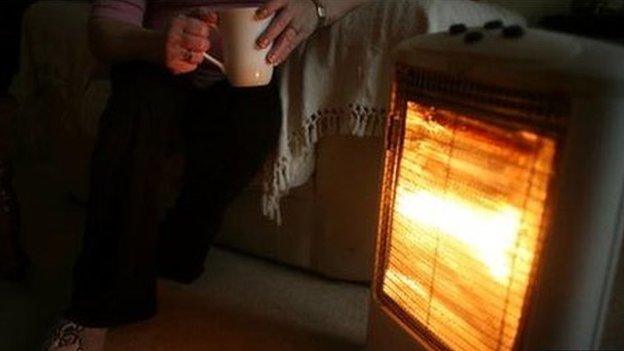Plumbers 'should report cold homes'
- Published

Plumbers and heating engineers should join with GPs and care staff in tackling problems caused by cold homes, health experts say.
There are about 24,000 excess winter deaths a year, while many more people are made ill by living in cold homes.
The National Institute for Health and Care Excellence (NICE) says each council area should establish teams to help people access grants and advice.
Professionals who carry out home visits could then refer those at risk.
NICE says this would have to be done with the agreement of the people judged as needing help.
But the watchdog said with a little training a "hidden army" of plumbers, meter readers and engineers could join with more traditional health and care staff in helping identify people at risk.
They could then be given advice about how to improve the energy efficiency of their homes, and how to access improvement and insulation grants.
Heart disease
Professor Gillian Leng, of NICE, said: "We must stop the revolving door scenario where people are made ill by living in a cold home, they go into hospital for treatment, but are then discharged back to the cold home which continues to damage their health."
There are an estimated 9m people living in fuel poverty in the UK, while Age UK found that cold homes cost the NHS over £1.3bn a year.
The government used to define a household as being in fuel poverty if more than 10% of income was spent on fuel. This was changed in 2013 and is now defined as when a household's fuel costs are above the median level.
Dr David Sloan, who drew up the guidance, said: "People with respiratory conditions, heart disease and children with asthma, are particularly at risk.
"Action on cold homes can prevent early deaths."
Neil Schofield, of the Heating and Hotwater Industry Council, said: "Our members make 8m home visits each year to install, service and maintain boilers and heating systems.
"Heating industry staff are seeing people affected by cold homes every day - this is a massive opportunity to identify these vulnerable people and direct them to help, an opportunity which is currently being missed."
- Published4 February 2015
- Published28 November 2014
- Published26 November 2013
- Published29 November 2012